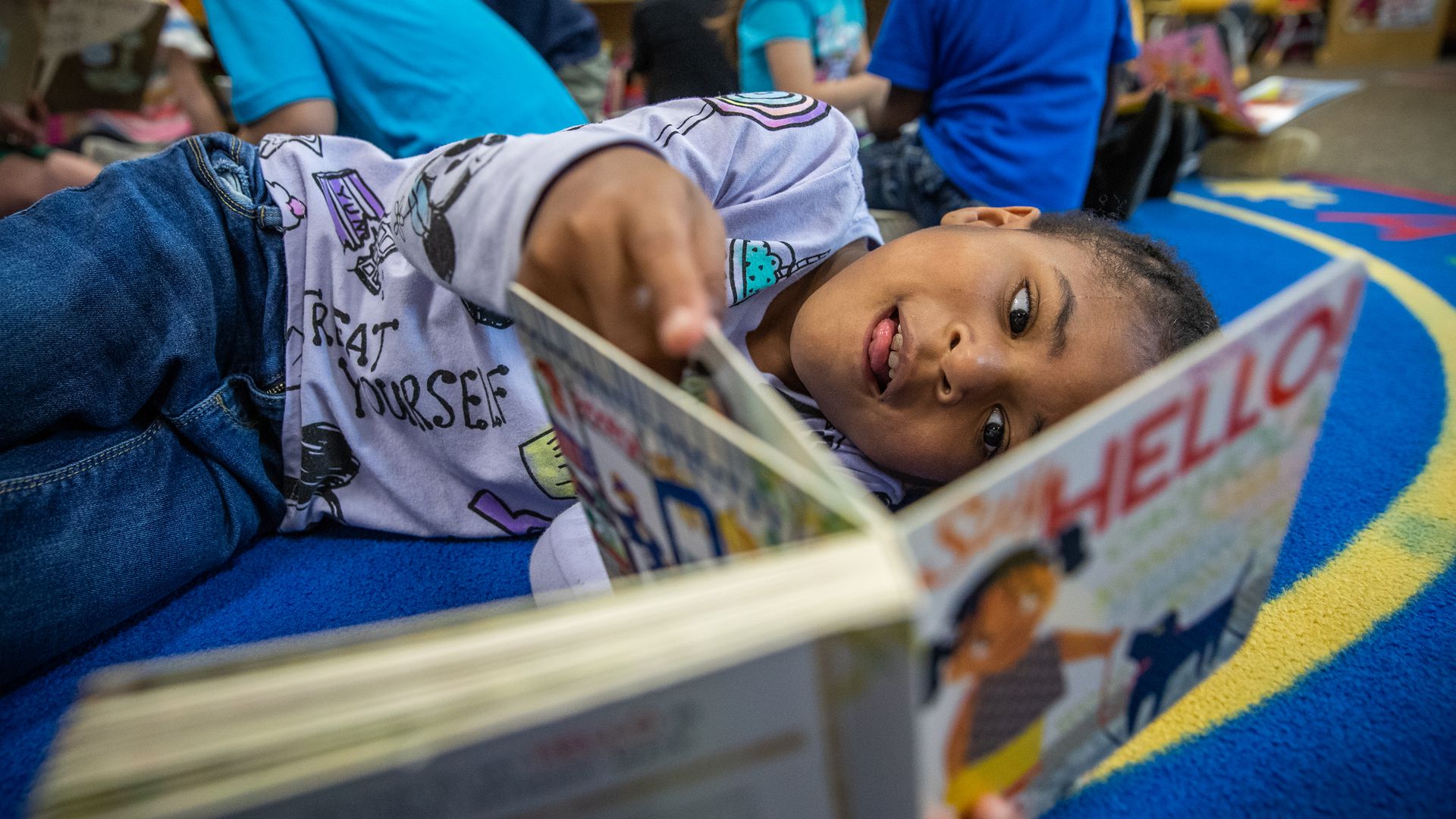
Colorado school districts and charter schools will have until early 2022 to ensure their early elementary teachers complete state-mandated training on reading instruction — with a financial penalty if they miss the deadline.
The State Board of Education on Thursday extended the original summer 2021 deadline by six months with the condition that districts inform teachers about the requirement by Dec. 1. In addition, districts that fail to meet the new Jan. 31, 2022 deadline for completing training will lose state money earmarked to help struggling readers during the 2022-23 school year.
The board’s 6-1 decision came after repeated calls by educators and district leaders in recent months to give teachers more time to complete the training because of the stresses of COVID-19. But the provisions requiring communication with teachers within the next 12 days and making funding contingent on district compliance reflect the board’s desire not to give much leeway in the push for better reading instruction.
Board member Joyce Rankin, who argued against the extension on Thursday and at a board meeting last week, cast the only no vote.
The training rule came out of a 2019 update of Colorado’s landmark reading law, which originally passed in 2012. The training is meant to cover the fundamentals of reading instruction, something many teachers say they never got in their teacher preparation programs.
To satisfy the requirement, Colorado’s 23,000 kindergarten to third grade teachers will have to complete 45 hours of training — about the same as a three-credit college class — or demonstrate the equivalent knowledge. Free classes provided by the state are among the options,
Several board members on Thursday expressed frustration with the slow pace of district efforts to improve reading instruction, including through teacher training and adopting reading curriculum backed by science.
Board chair Angelika Schroeder was among board members seeking higher stakes for districts that don’t meet the teacher training deadline.
She said of districts, “What they’re asking for is all the money and all the time, and no confirmation that actually their teachers are going to get there. There’s just been a lot of foot-dragging about this whole thing.”
She acknowledged that some of the delays are because of the pandemic, but said, “We do not have a deep commitment from the education community to get this moving.”
Board member Steve Durham also expressed exasperation with slow progress on reading improvements and pushed for strict oversight by the board.
“What we need to communicate as much as anything is, from here on out, we really mean it,” he said. “And not only for the teachers. but we have a number of districts who clearly don’t have a curriculum that’s in compliance.”
Durham also disagreed with the initial proposal that districts communicate to their teachers about the reading training requirement by Jan. 31.
“It’s the law now,” he said. “Why we would give them another day not to tell everybody what the law is, is beyond me. I don’t get it.”
The law requiring the new training passed in spring 2019, with additional details approved by the State Board of Education last spring, but some teachers have said they’ve received little information from the state or their districts about the new requirement.
The board’s final motion moved the date by which districts must notify teachers about the training requirement and deadline to Dec. 1.
This content was originally published here.

